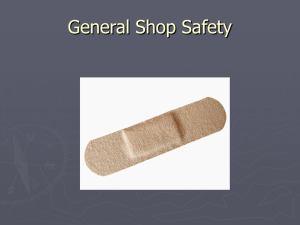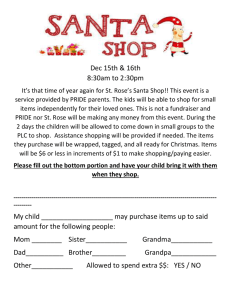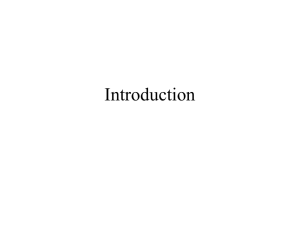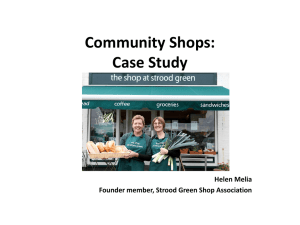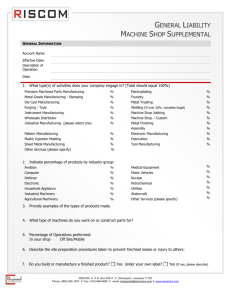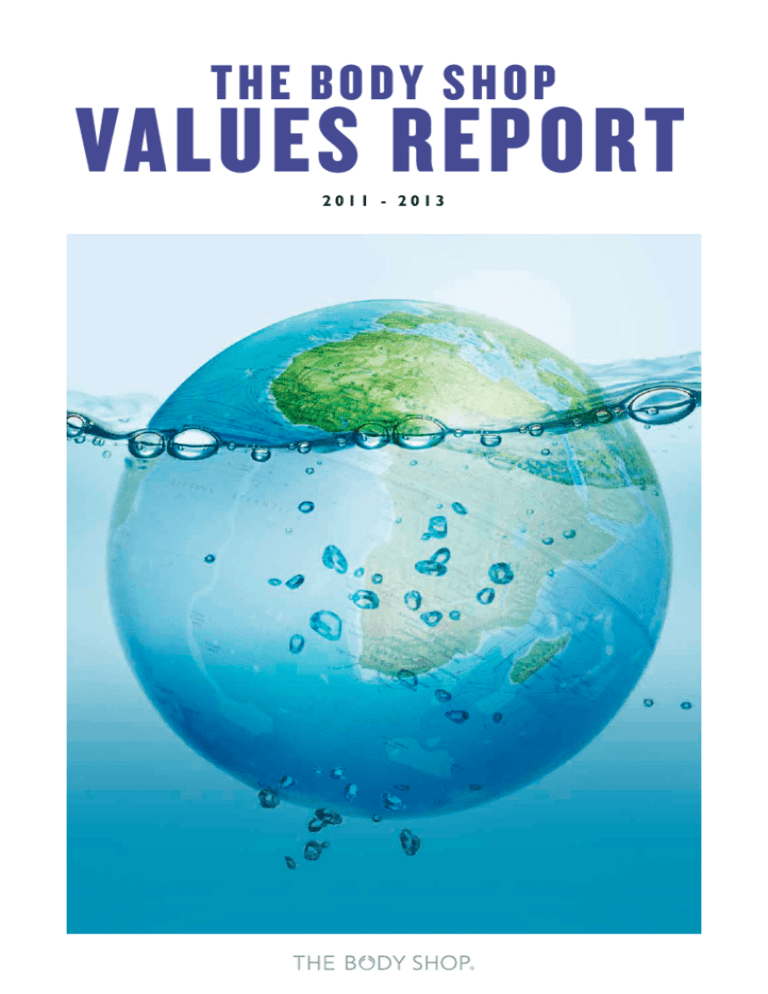
T HE BODY S HO P
VALUES REPORT
2011 - 2013
CONTENTS
04
06
10
14
18
22
INTRODUCTION
ACTIVATE SELF ESTEEM
AGAINST ANIMAL TESTING
COMMUNITY FAIR TRADE
DEFEND HUMAN RIGHTS
PROTECT THE PLANET
AT THE BODY SHOP OUR FIVE CORE
VALUES HAVE GUIDED US FOR
THE PAST THREE DECADES; THE
PRINCIPLES OF ACTIVATE SELF
ESTEEM, AGAINST ANIMAL TESTING,
SUPPORT COMMUNITY FAIR TRADE,
DEFEND HUMAN RIGHTS AND
PROTECT THE PLANET, REMAIN THE
FOUNDATIONS WHICH GUIDE
OUR BUSINESS ACROSS THE WORLD
INTRODUCTION
WHEN ANITA RODDICK OPENED HER VERY FIRST SHOP 38 YEARS AGO,
LITTLE DID SHE IMAGINE THE BODY SHOP WOULD GROW INTO A
GLOBAL BUSINESS WITH THOUSANDS OF STORES SPREAD ACROSS
THE WORLD.
But her vision for The Body Shop has always
remained true: a beauty retailer with strong
ethical values at its heart, built on a foundation
of a strong and sustainable business model.
Over the years, The Body Shop has become
a powerful force for change, and we are now
recognised as trailblazers in serving customers
with high-quality ethical beauty products. By
the end of 2013, we had 2,900 stores across 63
markets, and more people than ever before are
joining The Body Shop community.
For decades we have been guided by five core
values: to Activate Self Esteem, Against Animal
Testing, Defend Human Rights, Protect Our
Planet and Support Community Fair Trade.
Over 30 years later these values remain part
of our company, and alongside a series of
commitments and policies help steer our
day-to-day work. Despite many new challenges
facing the world of business over the past three
decades, we have managed to adapt whilst
adhering to these values.
I’m proud to share some of our achievements
since the 2011 The Body Shop Values report,
“Striving to be a Force for Good”.
VALUES REPORT 2011 - 2013
HERE ARE JUST A FEW
NOTABLE MILESTONES:
• The continued success of our award winning
Community Fair Trade programme
• The design of our new eco-store format and
its successful rollout across our markets
• The culmination of our most successful
campaign ever – to Stop Sex Trafficking of
Children and Young People
• A two-year programme supporting the launch
of Cruelty Free International, a high-profile
global campaign to end animal testing in the
cosmetics industry
As you will read in this report, our ambition
is to build on this momentum to support the
growth of The Body Shop by accelerating
sustainable and ethical business activity across
every area of the company - from our
and stores, right into our supply chain.
Christopher Davis
International Director of Corporate Sustainability
and Campaigns
4
WE DEMAND A CONTINUED
COMMITMENT TO SUSTAINABLE
AND ETHICAL BUSINESS
PRACTICE AS WE ENDEAVOUR
TO BE A BETTER BUSINESS
CASE
STUDY: A
VALUE COMMITMENT 1
Nº1 ACTIVATE
ACTIVATE
ESTEEM
SELFSELF
ESTEEM
VALUE
COMMITMENT
For The
For The
BodyBody
Shop,Shop,
activating
activating
self-esteem
self esteem
means
means
running
a business
running athat
business
makesthat
people
makes
who
people
encounter
who encounter
it feel good
about
our company
themselves.
feelOur
goodconcept
about themselves.
of beauty places
Our concept
inherent
worthofinbeauty
who we
places
are and
inherent
whatworth
we do,innot
who
just
wehow
are we
andlook.
what we do, not just how we look.
WE BELIEVE THAT WE SHOULD HAVE A POSITIVE
INFLUENCE ON OUR CUSTOMERS AND THE
PEOPLE WE WORK WITH. WE ALSO BELIEVE IN
USING OUR REPUTATION TO MOBILISE SUPPORT
TO CREATE LONG-TERM CHANGE FOR THOSE
WHO ARE SUFFERING OR DISADVANTAGED
AROUND THE WORLD.
CAMPAIGN TO STOP SEX TRAFFICKING OF
CHILDREN AND YOUNG PEOPLE
SEPTEMBER 2009 TO MARCH 2012
Our Stop Sex Trafficking of Children and Young
People campaign grew into the biggest-ever
The Body Shop action, with resounding political
impact around the world.
Building on this momentum, countries that had
not yet secured a positive response from their
government continued to work closely with ECPAT
and local activists to seek change at a national level.
The campaign called on governments to protect
young survivors of trafficking, and provide
specialised services to them. We joined forces
with End Child Prostitution and Trafficking
(ECPAT) International, a global network dedicated
to protecting children from sexual exploitation.
At The Body Shop, we galvanised our customers,
friends and family to raise awareness and funds,
to sign petitions and organise marches.
In response to the petition campaign, fourteen
countries changed policies and laws; eight countries
committed to adopt international standards to
protect children from sex trafficking. In total,
The Body Shop raised around £1.8million for
ECPAT International and their global network
through sales of the “Soft Hands Kind Heart”
hand cream. These funds went directly to projects
tackling child sex trafficking and commercial sexual
exploitation of children, preventing thousands of
young people from falling prey to sex traffickers.
The response was incredible, resulting in over
seven million (7,044,278) petition signatures, which
we used to lobby high-level political institutions.
In all, the campaign presented 36 national
petitions to governments and The United Nations
representatives. In September 2011, we presented
the petition to the UN Human Rights Council and
received the full support of the President of the
Council. It was the biggest human rights petition
to be presented to the European Commission and
United Nations.
VALUES REPORT 2011 - 2013
In March 2012, the campaign culminated in the
release of a report, “Creating Change Through
Partnership”.
During the campaign The Body Shop worked
with global TV network CNN as part of their
Freedom Project, and in 2011 our International
Director of Corporate Sustainability and
Campaigns received the prestigious United Nations
Business Leadership Award.
7
THE BODY SHOP FOUNDATION
CASE
STUDY: B
THE BODY SHOP FOUNDATION IS THE CHARITABLE ARM OF
THE BODY SHOP INTERNATIONAL, FUNDING INNOVATIVE
GLOBAL PROJECTS THAT ARE WORKING FOR SOCIAL AND
ENVIRONMENTAL CHANGE.
Since 1989, the Foundation has donated over
£21million to thousands of projects across the
world. The funds support small charities and projects
focusing on unconventional issues that struggle to
get access to traditional funding such
as Village Water, the Foundation for Women’s
Health Research and Development (FORWARD),
and the Environmental Investigation Agency.
SUPPORTING WOMEN’S EMPOWERMENT
IN TANZANIA 2012-2013
Every year, the Board of Trustees agree the
Foundation’s funding remit and groups who
work within the specific remits are invited
to apply.
The project is run by the Foundation for Women’s
Health Research and Development (FORWARD),
an African diaspora women’s charity working in
selected African and European countries.
FORWARD works to safeguard the dignity of, and
raise awareness on, the sexual and reproductive health
and rights of African women and girls. This includes
female genital mutilation, child marriage, obstetric
fistula and related challenges.
WHAT WE ACHIEVED
2011-2012
2012 -2013
THE FOUNDATION CONTRIBUTED £30,000
TOWARDS A PROJECT SUPPORTING THE SOCIAL
AND ECONOMIC EMPOWERMENT OF 45 WOMEN
AFFECTED BY OBSTETRIC FISTULA IN THE
DODOMA AND SINGIDA REGIONS
OF TANZANIA.
Social or environmental issues
funded across 35 countries
Social or environmental issues
funded across 51 countries
3,255 volunteering hours by company
and external volunteers donated to
the Foundation
3,470 volunteering hours by company
and external volunteers donated to
the Foundation
VALUES REPORT 2011 - 2013
Obstetric fistula is a childbirth injury caused by
prolonged labour which can lead to serious physical,
social and emotional problems. It is a treatable and
preventable condition, provided women giving birth
have access to adequate emergency care when
complications arise.
However less than six in 10 women in developing
countries give birth with a trained health professional
present. If there are complications, and there is no
one available to treat the mother, disabling injuries like
obstetric fistula or even death may result.
8
VALUES REPORT 2011 - 2013
9
AGAINST
ANIMAL
TESTING
NºAGAINST
2 AGAINST
ANIMAL
VALUE
COMMITMENT
WE BELIEVE IN A HUMANE APPROACH
TO COSMETICS SAFETY. WE GUARANTEE
THAT NONE OF OUR PRODUCTS ARE
TESTED ON ANIMALS AND THAT OUR
INGREDIENTS COME ONLY FROM
SUPPLIERS WHO DO NOT TEST THEIR
INGREDIENTS ON ANIMALS FOR ANY
COSMETIC PURPOSE.
We also ensure that all our products are cruelty-free and suitable for vegetarians. We make sure
that the few animal-derived ingredients we use, such as honey, are harvested without causing harm
to animals.
ANIMAL
TESTINGTESTING
We have always believed that the practice of testing
cosmetics and toiletries on animals is unethical. We adhere
to our Against Animal Testing policy in the development of
allallThe
TheBody
BodyShop
Shop®cosmetics
cosmeticsproducts.
products.
“THE BODY SHOP HAS A
LONG AND PROUD HISTORY
OF CAMPAIGNING AGAINST
ANIMAL TESTING.”
VALUES REPORT 2011 - 2013
11
CASE
STUDY
HISTORY HAS BEEN MADE!
FOR TWO YEARS CRUELTY FREE
INTERNATIONAL, SUPPORTED BY
THE BODY SHOP HAS BEEN CAMPAIGNING
FOR A GLOBAL BAN ON ANIMAL TESTING
IN COSMETICS. THANKS TO YOUR SUPPORT
A GREAT DEAL HAS BEEN ACHIEVED.
THE AGAINST ANIMAL TESTING MOVEMENT SPREAD FAST.
IN JUST TWO YEARS, WE HELPED ACHIEVE HISTORIC ACTION:
EUROPEAN UNION
After more than 20 years of campaigning,
we finally celebrated the end of animal testing
for cosmetics in Europe. On 11th March 2013,
the European Union banned the sale and
import of animal tested products and
ingredients, ensuring repercussions around
the world.
GLOBAL CAMPAIGN AGAINST
ANIMAL TESTING IN COSMETICS
ASIA
In October 2013, Cruelty Free International
received one million signatures from
The Body Shop customers and presented
them to the regulators of cosmetic products
in Southeast Asia, the Association of Southeast
Asian Nations (ASEAN), generating debate
and the potential for change.
The latest chapter in our long history of campaigning against animal testing came in 2012 when Cruelty
Free International, supported by The Body Shop, launched a new campaign calling for a global ban on
animal testing in cosmetics. Thanks to the support of our customers, we have succeeded in bringing
about real change.
“MORE THAN 1 MILLION OF THE BODY
SHOP CUSTOMERS AND CRUELTY FREE
INTERNATIONAL SUPPORTERS FROM
AROUND THE WORLD SIGNED OUR
PLEDGE CALLING FOR A GLOBAL BAN
ON ANIMAL TESTING IN COSMETICS.”
VALUES REPORT 2011 - 2013
THE INDIAN GOVERNMENT IS CURRENTLY IN
THE FINAL STAGES OF AGREEING A BAN
THAT COULD BE IMPLEMENTED AS EARLY AS
SUMMER 2014.
12
VALUES REPORT 2011 - 2013
13
COMMUNITY FAIR TRADE IN NUMBERS:
BY 2013
VALUE
COMMITMENT
FAIR TRADE
SUPPLIERS
DIRECTLY HELPING
TO SUPPORT
000
25,
WORKERS
& BENEFITING
320,000
MEMBERS
OF THEIR WIDER COMMUNITIES
COUNTRIES
IN 2013, WE SPENT OVER £9 MILLION ON CFT INGREDIENTS, GIFTS AND ACCESSORIES...
£9MILLION £7.8MILLION
OF PRODUCTS CONTAINING AT LEAST ONE
90% COMMUNITY FAIR TRADE INGREDIENT
AN INCREASE
FROM
IN 2012
Community Fair Trade (CFT) is The Body Shop’s own
independently verified fair trade programme. It launched
in 1987 on the premise that ‘trade not aid’ could best
help marginalised communities improve their lives and
alleviate poverty. It is still our commitment to trade fairly
with our suppliers. We buy the finest ingredients and
handcrafts directly from small-scale producers around
the world and in exchange, we offer them good trading
practices and fair pricing.
25 21
IN
OVER
Nº3 COMMUNITY
CFT PROGRAMME
WAS WORKING WITH
WITH OVER
SINCE 2009, ORGANIC AND FAIR TRADE CERTIFIER
THE INSTITUTE OF MARKET ECOLOGY (IMO) HAS
INDEPENDENTLY VERIFIED OUR CFT PROGRAMME
VALUES REPORT 2011 - 2013
15
2012
HIGHLIGHTS
IN 2012, WE CELEBRATED 25 YEARS OF
COMMUNITY FAIR TRADE, HAVING STARTED
OUT IN 1987 BY BUYING 10,000 FOOT
MASSAGERS FROM TEDDY EXPORTS IN
TAMIL NADU, INDIA.
2013
HIGHLIGHTS
CELEBRATING 25 YEARS OF COMMUNITY
FAIR TRADE
“THE BODY SHOP IS A TRUE
CHAMPION OF THE SMALL
PRODUCER – DEMONSTRATING
TRUE LEADERSHIP IN ADDRESSING
THE MILLENNIUM DEVELOPMENT
GOALS AGENDA…THE INFLUENCE
IT HAS HAD, INCLUDING WITH
THEIR PARENT COMPANY, L’OREAL,
HAS BEEN IMMENSE.”
It grew fast to become a global, ground-breaking programme working with 25 suppliers in 21
countries, buying over 1,200 tonnes of ingredients and 2.2 million gift and accessory items from
across the world.
Every year CFT gives a fair and stable income to thousands of workers and improves their
wider communities by building schools and health care centres, bringing clean water and offering
education scholarships.
VITAL VOICES AWARD
In 2012, Adi Tafuna’I,
chairwoman of our organic
virgin coconut oil supplier
in Samoa, received a Vital
Voices award in Washington
DC. Set up in 1997 by
Hilary Clinton, Vital Voice’s
mission is to identify, invest
in, and bring visibility to
extraordinary women
around the world. Adi
was given the Economic
Empowerment Award
for her commitment to
improving the livelihoods
of families in Samoa.
IN 2013, THE BODY SHOP RECEIVED THE
INTERNATIONAL RESPONSIBLE BUSINESS
AWARD FROM BUSINESS IN THE COMMUNITY
(BITC) AND CITI BANK FOR THE CFT
PROGRAMME’S WORK TOWARDS THE UNITED
NATIONS MILLENNIUM DEVELOPMENT GOALS.
- Francesco Vanni d’Archirafi, CEO of Citi, Chair
of Business in the Community’s International
Leadership Team on presenting the award.
2012
VITAL
VOICES
AWARD
SUPPLIER ACHIEVES ROUNDTABLE
ON RESPONSIBLE SOY (RTRS)
ACCREDITATION:
We use Community Fair Trade organically
grown soya oil from non-genetically-modified
(GM) soya beans in our products. This helps to
support the livelihoods of smallholder farmers
working for our supplier Gebana in Brazil. To
help develop a new standard for responsible
soy production, Gebana shared their knowledge
with the Roundtable on Responsible Soy and
in 2013 they received certification for their
commitment to responsible non-GM methods
of farming.
INSPIRING L’OREAL’S SOLIDARITY
SOURCING PROGRAMME
Since The Body Shop was integrated into the L’Oréal Group in 2006, eight of our Community Fair Trade
raw materials are now being used by other Group brands as part of their Solidarity Sourcing programme.
Jerome Courtaigne, International Sourcing Director at The Body Shop says, “Today the inspiration provided
by Community Fair Trade has come full circle, with the introduction of Solidarity Sourcing across all of
The Body Shop purchasing categories.”
The Body Shop has already invited 30 of its suppliers to join this programme and is preparing to launch four
major projects aiming to engage with 100 suppliers by the end of 2014.
VALUES REPORT 2011 - 2013
16
VALUES REPORT 2011 - 2013
17
WE KNOW WHERE ALL OF OUR PRODUCTS ARE MADE - WE SELECT
ALL OUR SUPPLIERS CAREFULLY AND WE ONLY BUY FROM SUPPLIERS
WHO HAVE SIGNED UP TO OUR STANDARDS. THROUGH OUR ETHICAL
TRADE PROGRAMME WE MONITOR THE WORKING CONDITIONS OF
THE PEOPLE MAKING OUR PRODUCTS. WE UNDERTAKE A MUTUAL
COMMITMENT WITH OUR SUPPLIERS, POSITIVELY ENGAGING WITH
THEM OVER IMPROVING WORKING CONDITIONS, AND WE GIVE THEM
THE TIME AND SUPPORT TO DO SO.
Nº4 DEFEND
VALUE
COMMITMENT
HUMAN RIGHTS
We have worked to promote and defend human rights ever
since The Body Shop started out three decades ago.
IN 2011, WE DEVELOPED AN ETHICAL TRADE
STRATEGY WITH FIVE STEPS FOR IMPROVING
OUR OWN STAFF AND SUPPLIERS’
WORKING CONDITIONS:
1. EXPANDING THE BOUNDARIES
4. SPREADING THE WORD
Reaching more of our own workers, such as
transport and temporary warehouse staff, and
other workers across the supply chain.
Publishing dedicated Ethical Trade pages on our
website with guidance for suppliers; organising
events such as Chinese Ethical Trade Supplier
Day (see case study below); improving supplier
communication; and training.
2. IMPROVING THE PROCESS
Ensuring our monitoring process provides an
accurate picture of the conditions of our supply
chain and ensuring workers have a voice, by
developing participatory methods for collecting
information.
5. WALKING THE TALK
Ensuring that we achieve external verification
of our standards by the independent
Institute of Market Ecology (IMO).
3. MOVING BEYOND MONITORING
Developing capacity-building programmes to
address employment issues that suppliers are
struggling to resolve.
VALUES REPORT 2011 - 2013
19
CASE
STUDY
OVER THE LAST 18 MONTHS, WE HAVE
FOCUSED ON INDIVIDUAL CAPACITY-BUILDING
PROGRAMMES. SINCE EARLY 2012, FIVE OF OUR
MANUFACTURING SITES – INVOLVING AROUND
1000 EMPLOYEES - HAVE INITIATED TRAINING
ACTIVITIES TO IMPROVE LABOUR STANDARDS.
ETHICAL TRADE
CAPACITY-BUILDING
Three experts in factory engagement facilitated
the event.
These have covered many aspects: from
designing reliable record-keeping to
strengthening management systems and
Corporate Social Responsibility procedures.
In the morning, Ethical Trade specialists
gave informative talks and in the afternoon
workshops run by local organisations explored
topics such as how to achieve compliance
through collaboration, worker retention and
business benefits of going beyond compliance.
The workers shared good practices and openly
discussed challenges they face in the workplace,
with all the sessions conducted in Mandarin to
encourage contribution.
The training programmes are designed in
consultation with both management and
workers, and are based on extensive reviews
of the factories’ management procedures.
CHINESE SUPPLIER DAY 2012
The Body Shop held its first Chinese Supplier
Day in November 2012 to give Chinese factory
workers the chance to discuss ways of bettering
their working conditions. Before the event, we
invited delegates to choose workshop topics
through an online survey.
In Shenzhen, southern China, workers from
42 factories gathered for the event. All 75
participants were producers of The Body Shop
products such as accessories and shop fitting.
VALUES REPORT 2011 - 2013
To end the meeting, attendees were invited
to sign a commitment to working with
The Body Shop and to act within our Supplier
Code of Conduct. In return, The Body Shop
agreed to work continually to improve
working conditions with their suppliers.
Mary Teakle, Head of the Ethical Trade
programme says, “Following this lively and
productive event, we have seen a greater
commitment and determination from the
Chinese factory management to work on difficult
issues which will ultimately improve working
conditions for their workers.”
20
VALUES REPORT 2011 - 2013
21
WE STRIVE TO MAKE OUR BUILDINGS AND PROCESSES MORE ENERGY
EFFICIENT; WE USE RENEWABLE ENERGY AND WE ARE RIGOROUS IN
SOURCING SUSTAINABLE MATERIALS. IN THIS SECTION, WE REVIEW
OUR PERFORMANCE AGAINST THE BODY SHOP’S ENVIRONMENTAL
TARGETS LAUNCHED IN 2010, AND HIGHLIGHT KEY
SUSTAINABILITY INITIATIVES.
1. PULSE - OUR SUSTAINABLE STORE
Nº5 PROTECT
VALUE
COMMITMENT
THE PLANET
The Body Shop was an early pioneer in green, ethical
business and we still have strong environmental credentials
to back up our reputation. However, we are never
complacent, and constantly explore ways to reduce our
carbon footprint.
Pulse is a group of The Body Shop sustainable stores – some are owned by us and others are franchised.
We launched Pulse in London in 2012, and by the end of 2013 we had rolled out over 800 Pulse stores
across the globe and boosted sales as a result. Pulse gives stores a fresh and vibrant “boutique” look, and
a green “makeover” too.
THESE ARE STANDOUT FEATURES
OF OUR PULSE STORES:
• Forestry Stewardship Council (FSC) sourced
shop fit – we will only use FSC certified sources
in our shop fits, ensuring the wood is from
sustainably managed and harvested forests.
We source all our products from just two
manufacturers, so we can ensure their true FSC
credentials.
• Sustainable flooring – we are aiming to use only
sustainable, non-PVC flooring, and are currently
VALUES REPORT 2011 - 2013
trialling a bespoke flooring product made from
natural minerals sourced from Scandinavia.
• Efficient lighting – we have redesigned the store
ceiling and display bay lighting to reduce electricity
consumption. By using fewer lamps, LED strip
lights and energy efficient celling lights we have
made energy savings of around 30 per cent compared to our previous lighting design.
• Energy efficiency - we serviced, replaced and
upgraded inefficient doors and heating, ventilation
and cooling systems where appropriate.
23
2. TRANSPORT
3. REDUCING WATER CONSUMPTION
To reduce our carbon footprint, we need to track how we get our products from distribution
centres to markets and stores. We use third party logistics contractors to transport our
products around the world.
“OUR AIR FREIGHTING PEAKED IN 2012 AT 4,117 TONNES OF CO2 AND WE ARE
PLEASED TO HAVE REDUCED OUR AIRFREIGHT BY 35% FROM 2011 TO 2013”
Water scarcity is a growing problem around the globe and The Body Shop is reducing its own water
consumption to address this. We have set a target of 25 per cent reduction in water use by 2020.
Since we use water primarily for domestic purposes – mainly sanitation, drinking and cooking - we
carried out a programme to upgrade washroom efficiency across our sites. Between 2010 and 2013,
we achieved a 37 per cent reduction in water use, already surpassing our 2020 target.
The chart below shows CO2 emissions associated with transporting The Body Shop products from
2011 to 2013. As airplane emissions are a major contributor to greenhouse gases worldwide, we
need to continue reducing our use of this form of transport.
2011
16000
AIR MILES
1709
3524
2347
BASELINE 2010
14000
12000
ROAD MILES
10000
SEA MILES
8000
2012
6000
1303
2076
4117
AIR MILES
4000
ROAD MILES
2000
SEA MILES
0
2011
2012
2013
2013
SITE WATER USAGE
VALUES REPORT 2011 - 2013
1333
2226
2194
AIR MILES
The chart above shows the water consumption (in m3) for our three largest international sites
(office and distribution centres, located in London and Littlehampton in the UK and North Carolina
in the US).
ROAD MILES
SEA MILES
24
VALUES REPORT 2011 - 2013
25
4. REDUCING ENERGY USE
5. RENEWABLE ENERGY
WE ARE FINDING WAYS TO CUT BACK OUR ENERGY CONSUMPTION
ACROSS THE BUSINESS, AND HARNESSING RENEWABLE ENERGY
A growing number of our stores are supplied with renewable energy. Since 2011, our stores in
Denmark and Portugal have switched to renewable energy supplies.
From 2011 to 2012, we looked at ways of reducing energy consumption in our stores through
Building Management Systems (BMS) that automatically control heating and lighting in stores.
As the results were inconclusive, we decided against rolling out the approach. However, we
remain committed to reducing energy through technological advancements and by improving
energy awareness among The Body Shop employees.
8000
7000
6000
5000
We set a target to reduce CO2 emissions from stores by 50% between 2010 and 2020.
So far we have achieved a 27 per cent reduction so we are well on track to meeting this
ambitious target. We can attribute most of these savings to our Pulse store refit programme.
4000
3000
2000
1000
0
30000
BASELINE 2010
25000
BASELINE 2010
2011
20000
15000
5000
0
2011
2012
CO2 FOR STORES
2013
We are also moving ahead with our own
renewable energy generation. In 2011, The Body
Shop installed the largest self-funded roof top PV
scheme in the UK. In April 2013, we generated
one million kWh of electricity - enough to
power nearly 300 homes for a year. Despite the
reductions in the government’s Feed in Tariffs
(FITs), we boosted our PV array at Watersmead,
our headquarters in West Sussex, UK by
The chart above shows our CO2 emissions in tonnes from energy use in our international stores.
VALUES REPORT 2011 - 2013
CO FOR SITES
Around 90% of our Europe, Middle East and
Africa (EMEA) company stores and over 50%
of international stores are powered by
renewable energy. With restricted availability
and deregulation in some markets, there is some
uncertainty over how and when the programme
can expand.
10000
26
VALUES REPORT 2011 - 2013
2012
2013
expanding onto the roofs of two more buildings.
We now have around 5,800 panels (1.1 MWp)
and we generate on average 30% of the site’s
electricity needs.
Plans for additional solar PV at Wake Forest
in North Carolina and a large wind turbine on
our Watersmead site were set back by planning
refusal (Wind turbine) and local infrastructure
issues in the US.
We set a target to reduce CO2 emissions from
our sites by 50% between 2010 and 2015. By
2013 we had already achieved a reduction of 61%
so this target has been surpassed. Most of this
reduction is due to the solar PV installation and
lighting upgrades.
27
6. CUTTING OUR WASTE
CASE
STUDY: A
We are committed to reducing the amount of waste we have going to landfill. We set a target to
reduce the waste we generate from our sites by 50% between 2010 and 2020.
SITES WASTE
TARGET
REDUCE THE AMOUNT
OF WASTE WE GENERATE
WE SENT
BY 50%
BY 2020
REDUCING OUR LANDFILL FAST!
To improve our disposal practices, we began
exploring the possibility of separating products
from their packaging. Over 18 months we
researched different companies and technologies
until we found a Danish manufacturer, RUNI,
who was able to design a bespoke machine for
this purpose.
OF WASTE TO
LANDFILL IN 2013
A REDUCTION OF
81
TONNES
INEVITABLY, SOME OF THE BODY SHOP
PRODUCTS END UP GOING TO WASTE DUE
TO QUALITY ISSUES AND OTHER REASONS.
HISTORICALLY WE USED A THIRD PARTY
CONTRACTOR TO DESTROY AND DISPOSE
OF THESE PRODUCTS BUT THIS MEANT NOT
ALWAYS KNOWING ITS FINAL DESTINATION.
We named the machine ROLF - Reducing Our
Landfill Fast - and installed it in February 2013.
87%
“WE NAMED THE MACHINE ROLF,
TO STAND FOR:
REDUCING OUR LANDFILL FAST”
A year on we have processed over 700 pallets of
stock, diverting some 270 tonnes of waste from
potential landfill, with 60% going to composting and
the rest reused, recycled or incinerated for energy.
Thanks to ROLF, we can now process our waste
more effectively and have significantly cut down on
waste going to landfill.
ON OUR 2010 BASE YEAR
SINCE 2010, WE HAVE ROLLED OUT
WASTE MANAGEMENT PROGRAMMES
ON OUR LARGEST SITES IN THE
UK AND US. WE EDUCATED STAFF
ON ISSUES SUCH AS BIN REMOVAL,
RECYCLING AND COMPOSTING TO
ENCOURAGE THEM TO BE MORE
ACCOUNTABLE FOR THEIR ACTIONS.
VALUES REPORT 2011 - 2013
28
VALUES REPORT 2011 - 2013
29
7. PACKAGING
8. SUSTAINABLY SOURCED MATERIALS
AS A SPECIALIST ETHICAL RETAILER, THE BODY SHOP CAREFULLY
BALANCES FUNCTIONALITY, GREAT DESIGN AND SUSTAINABILITY
OF OUR PRODUCT PACKAGING. OUR PACKAGING HAS TO SECURELY
TRANSPORT OUR PRODUCTS AROUND THE WORLD AND ENSURE
THAT THEY REACH THEIR DESTINATION IN GOOD CONDITION.
BECAUSE WE CARE ABOUT THE ENVIRONMENT, WE CAREFULLY
RESEARCH AND SOURCE SUSTAINABLE MATERIALS TO USE IN OUR
PACKAGING AND IN OUR STORES.
Some packaging also needs to provide our
customers with clear information on use and
ingredients and it has to conform to regulatory
requirements.
In 2011, we committed to increasing the number
of our products using recycled plastic packaging
to 65% by the end of 2012. We found this
commitment challenging, mainly due to the scarcity
and quality of this packaging and our volumes
remain at 2011 levels. We are still working hard to
address this, and will continue using recycled plastic
in our packaging wherever possible.
The Body Shop believes in using only sustainably
sourced wood, as a way of protecting forest
resources around the world.
“ALL OUR WOOD-DERIVED PACKAGING IS
FSC CERTIFIED AND IS INCLUDED WITHIN
OUR WOOD POSITIVETM PROGRAMME”
VALUES REPORT 2011 - 2013
We ensure that we get all our wood-derived
products, packaging and shop fit from FSCcertified sources. In 2013, the World Wide Fund
for Nature (WWF), through the global forest
30
VALUES REPORT 2011 - 2013
trade network, independently audited our
wood sourcing policy and processes and as
a result we were highly commended for our
sourcing.
Our Community Fair Trade supplier, Teddy
Exports achieved FSC certification earlier
in 2014.
31
CASE
STUDY: B
IN 2012 AND 2013 (YEAR 1 AND 2 OF
WOOD POSITIVE ) WE FOCUSED ON TWO AREAS:
FORESTS PROVIDE MANY ECOSYSTEM
SERVICES SUCH AS FOOD, SHELTER AND
WATER REGULATION, AS WELL AS ACTING
AS A CARBON SINK FOR GREENHOUSE
GASES, HELPING ADDRESS CARBON CHANGE
We launched our Wood Positive™ programme
in 2012, with the aim of planting and protecting
more trees than we use in our packaging.
To offset all the wood-based paper and pulp
that goes into our packaging we will plant highconservation-value trees, and protect established
trees in areas threatened by clearance.
TM
NO 1:
THE ATLANTIC RAINFOREST, BRAZIL
The World Land Trust (WLT), an international
conservation organisation, helps us calculate
how many trees we need to plant or protect
each year to offset our packaging.
The Atlantic Rainforest is one of the most threatened habitats in the world. It is home to a diverse range of
unique flora and fauna, but sadly only around seven per cent of this biodiversity hotspot remains.
We are working with the World Land Trust and Reserva Ecológica de Guapiaçu to restore and protect the
forest at the Guapiaçu Reserve, where over 400 different species live. The reserve also helps to regulate
the water source that supplies many nearby settlements
NO 2:
THE SOUTHERN ANDES, ECUADOR
The spectacled bear, mountain tapir and puma are just some of the endangered species that live in the
tropical forests of the Southern Andes. But the area is increasingly threatened by clearance. Together with
the World Land Trust and Nature and Culture International, we planted and protected trees in this critically
important part of Ecuador.
“SO FAR, WE HAVE
PRESERVED 132
HECTARES OF FOREST
AND RESTORED
56 HECTARES OF
DEGRADED LAND”
VALUES REPORT 2011 - 2013
SUMMARY
So far, the Wood Positive™ initiative has preserved 132 hectares of forest and restored 56 hectares of
degraded land. This has helped increase forest cover, which is essential for an abundance of wildlife and
for local communities.
32
VALUES REPORT 2011 - 2013
33
THE WAY FORWARD
9. PALM OIL
IN 2014, WE HAVE BEEN DEVELOPING A NEW COMPANY-WIDE
SUSTAINABILITY STRATEGY, RESPONDING TO THE EVER-CHANGING
WORLD IN WHICH WE OPERATE, AS ISSUES LIKE CLIMATE CHANGE AND
BIODIVERSITY LOSS PROMPT US TO ACT WITH GREATER URGENCY.
Palm oil is one of the most widely used natural
resources – used to make anything from biscuits
to biofuel and used extensively in processed
foods. The escalating clearance of forests for
palm oil plantation, particularly in Southeast Asia,
has led to mounting environmental concerns.
The Body Shop was one of the founder members
of the Roundtable on Sustainable Palm Oil
(RSPO), set up in 2004 to promote the growth
and use of sustainable palm oil. We seek out
suppliers who uphold this approach.
Since our last report, we have attained our
commitment: 100% of our crude palm oil is
RSPO certified.
We are committed to ensuring that our palm oil
derivatives are also sourced from RSPO certified
sources but currently it is a challenge to find
suitable sources. We will work hard to achieve
this by 2018 or earlier. In the meantime, we will
buy green palm certificates to offset our nonRSPO derivatives.
1
2
“100% OF OUR
CRUDE PALM OIL IS
RSPO CERTIFIED”
VALUES
VALUES REPORT
REPORT 2011
2014- 2013
3
36
34
POLICY FRAMEWORK & PERFORMANCE
Beginning in 2015, we will report on the performance of our values
policies sharing our successes and addressing key challenges based on
the philosophy of continuous improvement. Every year we are committed
to updating our Values Policies ensuring the way we run our business
reflects the needs and the challenges of a changing world.
TARGET SETTING &
PERFORMANCE MEASUREMENT
In 2015, we will announce a series of new Sustainability targets which
we will embrace across The Body Shop. These targets will be designed
to help us deliver a more sustainable business and reflects our desire
to challenge ourselves and continually improve our sustainability
performance. Where we have current target commitments, our new
targets will exceed these ambitions and we will report on our progress
every year.
DELIVERING SUSTAINABLE INNOVATION
We have begun to identify how we can embrace the concept of true
sustainable innovation across our core business focusing particularly on
stores and all aspects of our products from ingredients to customer use.
Whilst this is very much work in progress, we have clearly set out an
ambition and preparation for an effective internal framework for
sustainable innovation. We will share more of our progress in 2015.
VALUES REPORT 2011 - 2013
35
VALUES REPORT 2011 - 2013
© 2014 The Body Shop International Plc. All rights reserved Absolutely no reproduction without the permission of the owners
® Registered trademark of The Body Shop International Plc. ™ A trademark of The Body Shop International Plc. INVALLC020

